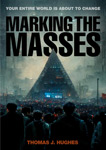Celebrating Life: A Non-Religious Funeral Perspective in a Multicultural Society
 By
By
In a world teeming with diverse cultures,
traditions, and beliefs, we must acknowledge the power of inclusivity and
embrace the rich tapestry of human experiences, even in the sombre moments of
bidding farewell to a loved one.
Funerals hold profound significance as they
provide an opportunity to honour a life lived, offer solace to the bereaved,
and commemorate shared memories. However, in our increasingly multicultural
society, we must explore funeral perspectives encompassing the non-religious
ethos while fostering unity and respect for all.
This captivating journey of non-religious funerals delves into the realm of compassion,
empathy, and the infinite possibilities of creating meaningful ceremonies that
transcend religious boundaries.
Funeral ceremonies steeped in non-religious
perspectives offer a unique approach to commemorating the life of a departed
soul. These ceremonies, free from religious dogma and rituals, embrace the
essence of celebrating the individual's journey on Earth and treasuring the
memories they left behind. Let us explore the defining features of
non-religious funeral ceremonies and their profound significance.
Non-religious funeral ceremonies, often called
secular or humanist funerals, centre around the concept of bidding farewell
without the influence of religious beliefs or practices. These ceremonies are
designed to be inclusive, respectful of diverse beliefs, and focused on
celebrating life itself. Without religious rites, the emphasis shifts towards
creating a heartfelt tribute that reflects the individual's values, passions,
and contributions.
At the core of non-religious funeral ceremonies
lies a sincere celebration of the unique existence and accomplishments of the
departed. These ceremonies encourage attendees to embrace shared memories,
honour the achievements and impact of the individual's life, and find solace in
the positive legacies left behind. Rather than dwelling solely on the sorrow of
loss, non-religious funerals aim to uplift spirits by fostering an atmosphere
of gratitude, reflection, and shared remembrance.
Non-religious funeral ceremonies place great
importance on acknowledging and respecting the personal values and beliefs of
the deceased. These ceremonies often incorporate secular traditions and rituals
that hold significance to the individual or their family, creating a meaningful
and authentic experience. From personalised eulogies and readings to symbolic
gestures that encapsulate the essence of the departed, every element is
thoughtfully crafted to honour the individual's unique journey while embracing
the diverse fabric of our multicultural society.
In understanding the non-religious funeral
perspective, we gain insights into a compassionate approach that transcends
religious boundaries, fosters inclusivity, and celebrates the profound beauty
of a life lived. Let us now explore the significance of multiculturalism in
funeral ceremonies as we discover the power of embracing diversity in our
commemorative practices.
Multiculturalism highlights the myriad of
cultures and religions coexisting within a society. As a reflection of these
diverse backgrounds, funeral ceremonies should strive to embrace and
accommodate the unique practices, customs, and rituals associated with different
cultural and religious traditions. By recognising and acknowledging this
diversity, we create an environment that values and respects the beliefs and
traditions of all attendees, providing solace and support during their time of
mourning.
By incorporating multicultural elements into
non-religious funeral ceremonies, we enrich the overall experience for
mourners. These elements range from music, art, and poetry to symbolic rituals
and gestures from various cultural traditions. Such integration honours the
diversity present and allows attendees to learn and appreciate different
cultural practices, fostering greater understanding and empathy among
individuals from various backgrounds. Incorporating multicultural elements
creates a more inclusive and harmonious environment that transcends cultural
boundaries, allowing everyone to find solace and connection in their shared
humanity.
"Celebrating Life" in a non-religious
funeral context entails embracing a personalised approach that highlights the
individual's unique journey, cherishes their memories, and provides a sense of
closure and connection. By incorporating key elements into the ceremony, we
create a heartfelt tribute that resonates with attendees, regardless of their
religious or cultural backgrounds.
●
Personalization: From selecting meaningful
music, readings, and visual elements to incorporating personal anecdotes,
hobbies, or achievements, personalization creates a uniquely tailored ceremony
that authentically honours and celebrates the individual's life and essence.
●
Eulogies and storytelling: Eulogies take
centre stage in a non-religious funeral ceremony, allowing loved ones to share
heartfelt stories, memories, and reflections. These personal narratives allow
mourners to reminisce, express emotions, and highlight the legacy and qualities
that made the individual special. Through storytelling, attendees are reminded
of the profound connections forged and the lasting impact of the departed's life.
●
Symbolism and rituals: These symbols and
rituals can be tailored to reflect the individual's beliefs or draw inspiration
from cultural or universal symbols of life, unity, and remembrance. Lighting
candles, planting trees, creating memory boards, or engaging in communal
activities are examples of non-religious rituals that provide solace, closure,
and a shared sense of connection among mourners.
Cultural sensitivities refer to the awareness and
respect for different cultures' values, beliefs, and customs. To navigate these
sensitivities, educating ourselves about various cultural practices and
traditions is crucial.
This understanding helps us avoid cultural
appropriation, ensuring we do not appropriate or misrepresent elements that
hold deep significance to specific cultures. By approaching cultural traditions
with reverence and genuine respect, we create an environment that promotes
inclusivity and avoids unintentional disrespect.
Collaboration with bereaved families and cultural
communities is key to navigating cultural sensitivities effectively. By
engaging in open and respectful dialogue, we can understand the cultural
practices and beliefs that hold importance to the family and their community.
By involving the family and community, we foster a sense of ownership and
inclusion, ensuring that their cultural heritage is honoured appropriately.
While non-religious funeral ceremonies focus on a
secular approach, navigating religious sensitivities with sensitivity and
respect is crucial. Understanding and acknowledging the religious beliefs of
attendees allows us to create an environment that accommodates and respects
their faith.
This may involve providing space for individual
prayer or silent reflection, allowing attendees to observe their religious
customs, or offering support for any specific religious rituals they wish to
include alongside the non-religious ceremony. By being mindful of religious
sensitivities, we ensure that all attendees can participate in a way that
aligns with their beliefs.
In today's digital age, technology plays a
significant role in facilitating multicultural non-religious funerals. By
leveraging digital platforms, utilizing multimedia presentations, and creating
virtual memorials, we can embrace inclusivity, engage remote participants from
diverse locations, and create lasting memories honouring the commemorated
individual.
Through technology, multicultural non-religious
funerals can transcend physical boundaries, engage a wider audience, and create
meaningful experiences incorporating cultural traditions and customs.
By leveraging digital platforms, multimedia
presentations, and virtual memorials, we ensure that every individual's unique
background and contributions are acknowledged, celebrated, and remembered in a
way that resonates with all attendees. As we navigate the evolving landscape of
funeral practices, technology offers us new avenues to embrace inclusivity and
foster unity in our multicultural society.Understanding the Non-Religious
Funeral Perspective
Emphasis on celebrating the life
lived and cherishing memories
Focus on personal values,
beliefs, and secular traditions
The Significance of
Multiculturalism in Funerals
Key Elements of Celebrating Life
in a Non-Religious Funeral
Navigating Cultural Sensitivities
The Role of Technology in
Multicultural Non-Religious Funerals




